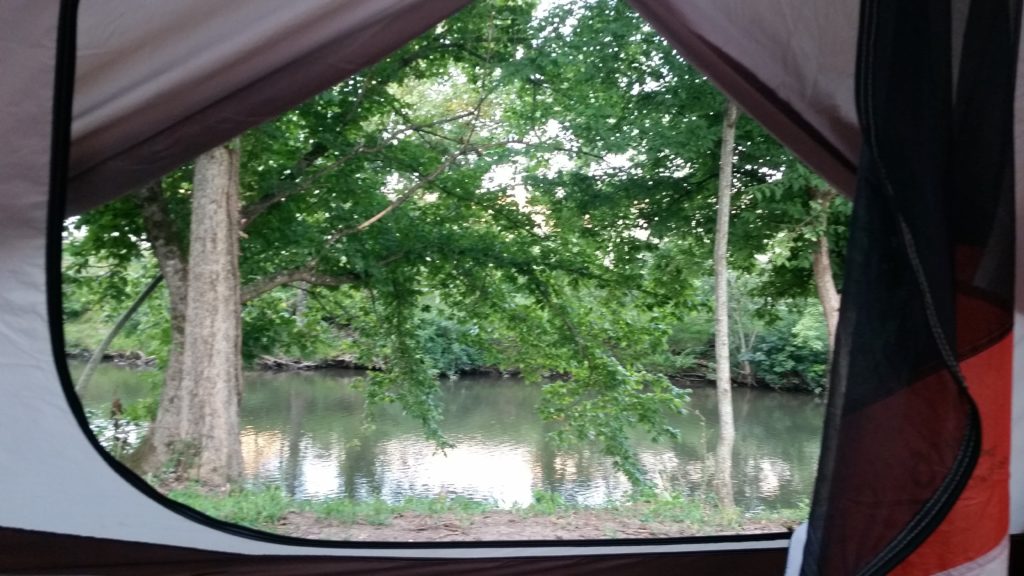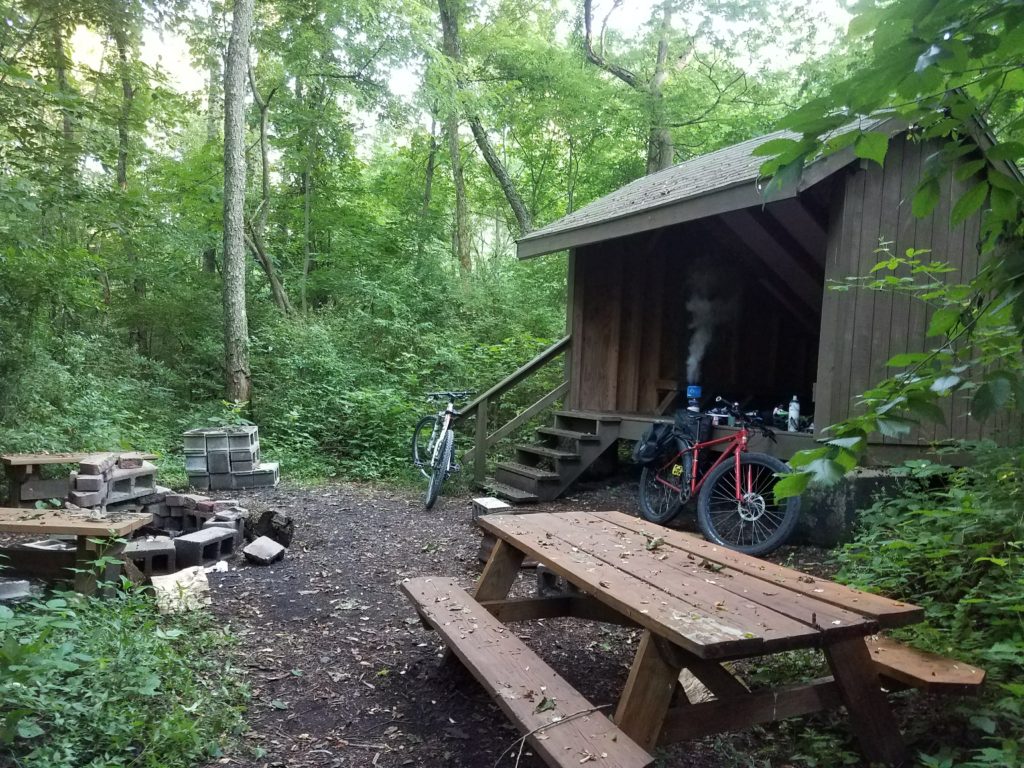Part 1: The Research
I get a couple free titles with my Audible (audiobook) subscription every month, which is nice because it expands my horizons beyond what I would normally choose to read (or listen to, as the case may be). Sometimes I’ll get a short novel, sometimes a radio drama, and sometimes – like this month – something a little more grounded in reality. I just finished a book called The 3-Day Effect by Florence Williams.
When I say “book,” it is more a series of interviews connected with narration by the author, but the premise is based on research by University of Utah cognitive neuroscientist David Strayer, whose studies show that three days spent in nature effectively resets the brain, improving cognitive function, creativity, and emotional wellbeing. In the book, Williams interviews different groups of people experiencing three days in nature: veterans with PTSD, survivors of sex trafficking, and a self-described nature-hater. Spoiler alert: they all demonstrate drastic improvements in brain function, as demonstrated through quantitative and qualitative data, specifically mentioning 72 hours as a turning point.
The Research
Strayer’s research that was detailed in a 2012 publication (see below for a link to the journal) involved administering cognitive tests, such as word games and problem-solving puzzles, to 28 backpackers on an Outward Bound trip immediately before and after their time in the wilderness. Their scores on the tests improved by a whopping 47 percent after they returned, post-backpacking.
He believes that being out in nature leads to greater relaxation, clearer thought, and increased creativity. “If you can disconnect and experience being in the moment for two or three days, it seems to produce a difference in qualitative thinking,” Strayer says.

The theory here is that being away from the daily routine, the frequent and expected stresses, and the constant management of details, allows the prefrontal cortex to rest. Studies performed (literally) in the field involving brainwave monitoring actually show that theta waves, which are active when performing demanding cognitive tasks, quiet down significantly when the subject is in nature, away from technology and ties to daily life (e.g. social media). Once the prefrontal cortex quiets down, other parts of the brain can become more active, specifically areas linked to perception, empathy, and day-dreaming. [1]
My question when reading the book was whether this result of refreshed cognition and renewed creativity was an effect of nature or simply from taking a break. Apparently a 1991 study from psychologist Terry Hartig answers that question by using a control group that went on a more scheduled/structured sightseeing vacation, while the test group went backpacking. After similar cognitive tests were administered, it was only the backpackers who showed an improvement.
My Experience
For as much as I love nature, I have rarely been out in it for such an extended period of time. I have camped for up to seven days at medieval reenactments, but for those of you who are familiar with the Pennsic War, it is a jam-packed week (or two) of classes, battles, performances, and other events held in a tent city; it is not a quiet excursion into nature. Research has shown that for this mental shift to take effect, the person in question needs to be 1) out in nature for about 72 hours, and 2) separated from technology, such as smartphones.

Usually my camping trips are one, occasionally two nights long. In fact, the only camping trip I can even think of that involved three nights was a Memorial Day weekend trip with friends from graduate school that took place four years ago, when I was introducing them to my new boyfriend, Christian. I do not recall much of a shift in my thinking by day three on that trip, but I was incredibly preoccupied with concern that everyone get along and like each other. It was a fun trip, but it was not a relaxing one for me personally.
I found it an interesting coincidence that this month’s selection from Audible just happened to coincide with another Memorial Day trip with the same group of people, also three days long. I look forward to seeing if I experience any such effect, especially since I should be able to be more in the moment this time. I am certainly more addicted to my phone than I was four years ago, but I don’t foresee any problems with turning it off and putting it away for the duration of the trip, or at least most of it. WordPress has an auto-publish function, meaning it won’t be necessary for me to log in from the woods specifically to publish this post on Sunday.
I do anticipate that there will be some technology used this weekend – I am specifically thinking of music played from a phone over Bluetooth speakers – but that isn’t quite the same as passing phones around to watch YouTube videos or constant Facebooking. Additionally, we may not be out in nature the entire time. There was some talk of driving into Ashville to visit one or more of their many breweries. I’ve rarely been on a camping trip where there wasn’t some kind of day trip into civilization, so for all I know, that may negate the effect or restart the clock somehow.
Whether or not this trip will effectively reset my brain and give my prefrontal cortex a break, I am very much looking forward to several days with friends, away from the responsibilities of daily life, in the beauty of nature. I’ll certainly be writing more next week about how the trip went and if we noticed any changes.

Further Reading
Here you can find an abstract of David Strayer’s paper and link to the journal:
Creativity in the Wild: Improving Creative Reasoning through Immersion in Natural Settings[2]
Adults and children are spending more time interacting with media and technology and less time participating in activities in nature. This life-style change clearly has ramifications for our physical well-being, but what impact does this change have on cognition? Higher order cognitive functions including selective attention, problem solving, inhibition, and multi-tasking are all heavily utilized in our modern technology-rich society. Attention Restoration Theory (ART) suggests that exposure to nature can restore prefrontal cortex-mediated executive processes such as these. Consistent with ART, research indicates that exposure to natural settings seems to replenish some, lower-level modules of the executive attentional system. However, the impact of nature on higher-level tasks such as creative problem solving has not been explored. Here we show that four days of immersion in nature, and the corresponding disconnection from multi-media and technology, increases performance on a creativity, problem-solving task by a full 50% in a group of naive hikers. Our results demonstrate that there is a cognitive advantage to be realized if we spend time immersed in a natural setting. We anticipate that this advantage comes from an increase in exposure to natural stimuli that are both emotionally positive and low-arousing and a corresponding decrease in exposure to attention demanding technology, which regularly requires that we attend to sudden events, switch amongst tasks, maintain task goals, and inhibit irrelevant actions or cognitions. A limitation of the current research is the inability to determine if the effects are due to an increased exposure to nature, a decreased exposure to technology, or to other factors associated with spending three days immersed in nature.
And a review of Florence Williams’ book:
The 3-Day Effect[3]
The 3-Day Effect is a look at the science behind why being in the wild can make us happier, healthier and more creative. Whether it’s rafting down Utah’s Green River, backpacking in Arizona’s wilderness or walking through Rock Creek Park in Washington, D.C., scientists are finding that the more exposure humans have to nature, the more they will benefit from reduced anxiety, enhanced creativity and overall well-being. Trek with science journalist Florence Williams as she guides former Iraqi war veterans, sex trafficking survivors, and even a nature hater, on three-day nature excursions to see how the outdoors offers something like a miracle cure for an array of extreme and everyday ailments.
Thanks for reading!
[1] https://www.rei.com/blog/camp/the-nature-fix-the-three-day-effect
[2] https://journals.plos.org/plosone/article?id=10.1371/journal.pone.0051474
[3] https://www.goodreads.com/book/show/41970691-the-3-day-effect
2 Comments
Charles Korey · May 26, 2019 at 5:50 pm
Dear Alison,
I think it is a great idea to get back to nature and scale back the technology. The beauty of every aspect of nature is so worth it.
Chuck Korey
Alison · May 28, 2019 at 8:57 am
Thank you Chuck! It’s no surprise to me that the trip was amazing. I was so happy to be without cell coverage the whole time. We were able to stay present in having conversations and observing nature. I didn’t want to come home.